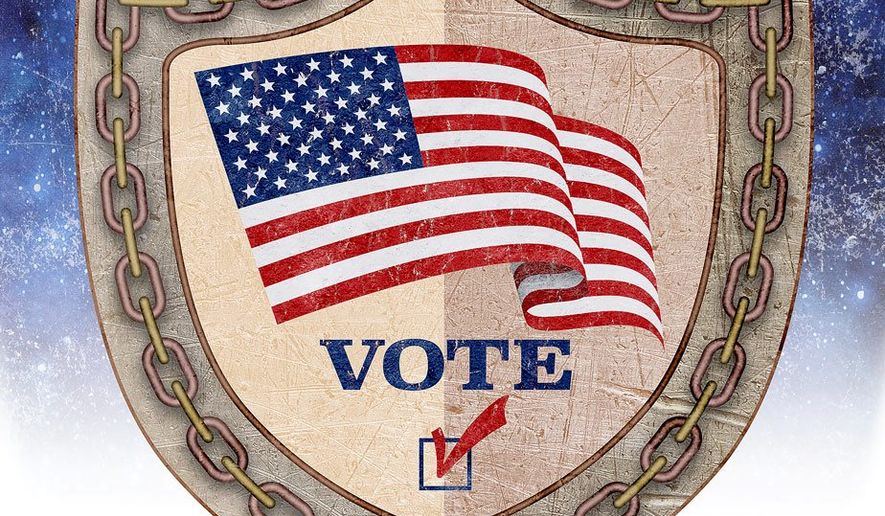OPINION:
Russian interference in the 2016 election deployed high-tech statecraft, and the pressure to punish Russia is correspondingly great. But can proposed legislation ensure hands off? That’s certainly the hope of Sens. Marco Rubio and Chris Van Hollen, who have re-introduced the Defending Elections from Threats by Establishing Redlines (DETER) Act, as well as Sens. Lindsey Graham and Robert Menendez, who have authored the Defending American Security from Kremlin Aggression Act (DASKAA).
DETER would give the director of National Intelligence a month to determine whether Russia has meddled in U.S. elections; after an affirmative determination, which the Mueller report makes all but certain, the president would be required to impose specified sanctions, blocking the assets of a long list of Russian firms and individuals. DASKAA aims primarily at the energy sector, broadly prohibiting American involvement in oil and gas production and other Russian-supported projects globally.
Unfortunately, both DETER and DASKAA threaten unintended consequences for American companies and heightened confrontation with U.S. allies.
The Defending Elections from Threats by Establishing Redlines Act is a shotgun aimed at multiple Russian sectors — banks, energy, mining, railways — that do business with U.S. firms. Mandatory sanctions could keep U.S. partners from being paid for services or from operating altogether. The Defending American Security from Kremlin Aggression Act seeks to strengthen the State Department, but as well Title VI would impose mandatory sanctions on Russia’s oil and gas production, forcing major U.S. firms out of the game, and hit an assortment of other Russian targets.
If the Defending American Security from Kremlin Aggression Act is enacted, Russia is likely to further weaponize oil production in response, seeking to steer energy markets to its global advantage alongside OPEC. DETER and DASKAA would both catch U.S. firms and U.S. allies in the crossfire and enrich selected oligarchs when American companies retreat from the Russian marketplace.
Truth be told, the torpedoes aimed by these bills at Russia are likely to hit the United States. In fact, the Treasury Department warned last year against sanctioning new Russian sovereign debt — among DASKAA targets — since restrictions on U.S. dollar clearing would ultimately diminish the role of the dollar as the world’s premier currency. China stands to benefit from self-inflicted damage to the dollar.
Better solutions exist. President Trump has already signed the Countering America’s Adversaries Through Sanctions Act that imposes sanctions on U.S. or foreign firms that do business with malignant Russian actors. This legislation has been fine-tuned by Executive Order 13849 to hit foreign collaborators. This only reinforces efforts already occurring to safeguard U.S. elections.
The Department of Homeland Security has partnered with state and local leaders and the private sector over the past two years to beef up election infrastructure, following news that 21 states had their election computer systems scanned for vulnerabilities by Russia-backed hackers. While further efforts are warranted, Congress has already devoted $380 million for the U.S. Election Assistance Commission to address underlying security concerns. Congress should do more to harden our own infrastructure to prevent election meddling — either by Russia or other foreign powers in the future.
Lawmakers want to act on election meddling, and they should. Retaliatory sanctions can punish Russia for past misdeeds, but they are not the solution for future meddling. Sanctions will hurt U.S. companies, disrupt oil and financial markets and enrich oligarchs who already dominate the Russian economy. Congress should focus on efforts underway to protect American elections from Russian meddling. Investing in security, not passing more sanctions, is a winning strategy for keeping Russia and other countries out of U.S. polling booths.
• Gary Clyde Hufbauer is a nonresident senior fellow at the Peterson Institute for International Economics.




Please read our comment policy before commenting.